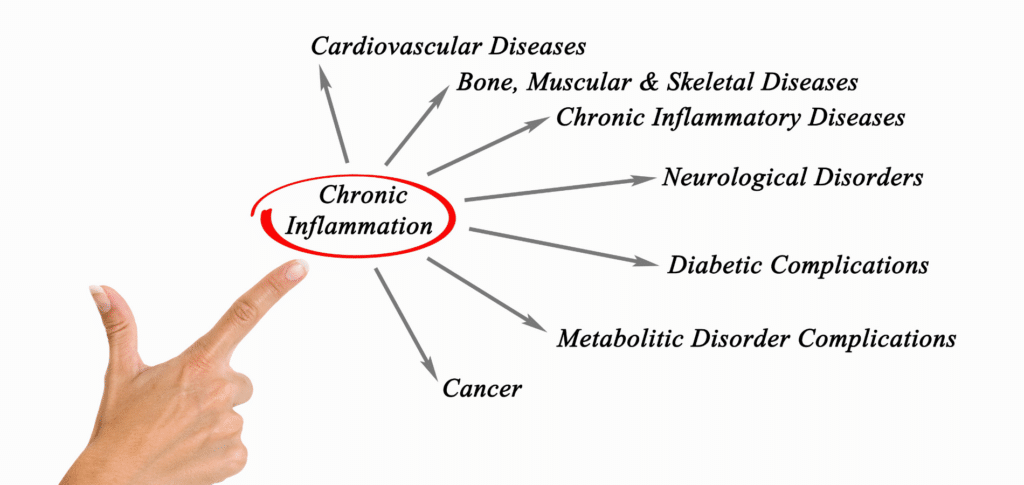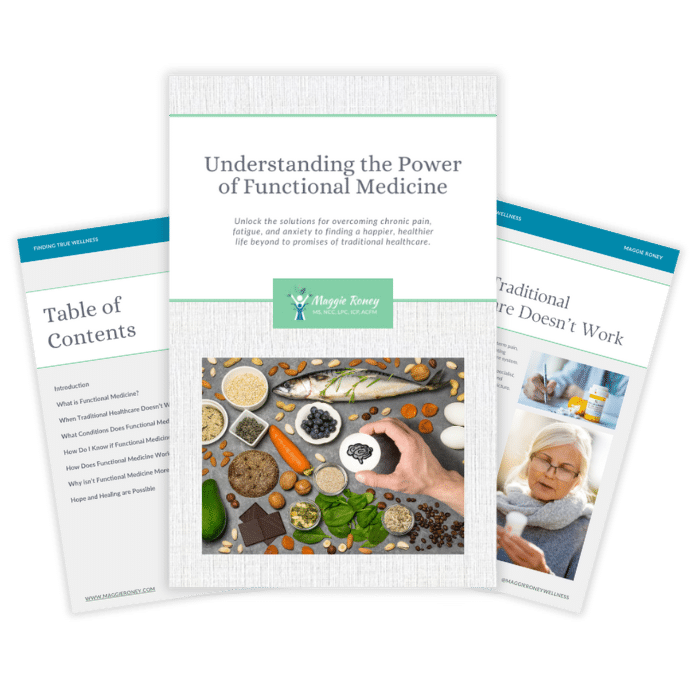Inflammation is our body’s natural defense mechanism against injury or infection, playing a critical role in healing. However, when this response becomes chronic, it poses a significant risk to our health.
In this detailed exploration, we will uncover four natural strategies to combat chronic inflammation and maintain optimal health.

What is Chronic Inflammation?
To effectively tackle chronic inflammation, it’s vital to grasp its nature and impact. Unlike acute inflammation, which is a short-term response to immediate threats, chronic inflammation is a persistent, low-grade inflammatory process. This prolonged state can gradually damage tissues and organs, often without noticeable symptoms until significant harm has been done.
The Dangers of Chronic Inflammation
The stealthy nature of chronic inflammation makes it a particularly insidious health risk. It’s linked to a plethora of diseases, including but not limited to heart disease, diabetes, and various forms of arthritis. This silent invader can wreak havoc on our bodies, often remaining undetected until it’s too late.
Check out my recent article on Understanding Chronic Inflammation: The Silent Alarm for Your Health to learn more about the warning signs and dangers of this particular health issue.
1. Adopt an Anti-Inflammatory Diet
One of the most effective ways to counter chronic inflammation is through dietary changes. An anti-inflammatory diet focuses on foods rich in antioxidants and omega-3 fatty acids, known for their inflammation-reducing properties.
Foods to Include:
- Fruits: Berries, oranges, and other citrus fruits are packed with antioxidants.
- Green Leafy Vegetables: Spinach, kale, and other greens are nutrient-dense and anti-inflammatory.
- Nuts: Almonds, walnuts, and others provide healthy fats and reduce inflammation.
- Fatty Fish: Salmon, mackerel, and similar fish are excellent omega-3 sources.
Foods to Avoid:
- Processed Foods: Often high in unhealthy fats and additives.
- Sugary Snacks: Excess sugar can trigger inflammatory responses.
- Excessive Red Meat: Linked to increased inflammation.
- Trans Fats: Found in some fried and processed foods, known to promote inflammation.
2. Regular Exercise
Physical activity is a potent anti-inflammatory tool. The key is consistency and finding a balance that suits your lifestyle.
Exercise Tips:
- Aerobic Activity: Strive for at least 150 minutes of moderate exercise like brisk walking or cycling each week.
- Strength Training: Incorporate it twice a week to build muscle and reduce fat, which can contribute to inflammation.
- Yoga and Pilates: These practices not only improve flexibility and strength but also aid in stress reduction, further combating inflammation.
3. Manage Stress
Chronic stress is a known trigger for inflammation. Therefore, managing stress is a critical component in the fight against chronic inflammation.
Stress Reduction Techniques:
- Meditation and Mindfulness: These practices help center the mind and reduce stress levels.
- Deep Breathing Exercises: Simple yet effective in calming the nervous system.
- Regular Relaxation and Recreation: Engage in hobbies and activities that bring joy and relaxation.
4. Get Adequate Sleep
Sleep is a foundational aspect of health, particularly in inflammation regulation. Poor sleep patterns can exacerbate inflammatory responses.
Sleep Tips:
- Consistent Schedule: Going to bed and waking up at the same time every day helps regulate your body’s clock.
- Quality Sleep: Aim for 7-9 hours of uninterrupted sleep.
- Relaxing Bedtime Routine: Activities like reading or a warm bath can signal your body it’s time to wind down.
- Check out a recent article, Sleep Better: 9 Ways to Improve Your Sleep Habits Naturally for more practical tips on better sleep!
Conclusion
Tackling chronic inflammation is a multifaceted endeavor. By embracing an anti-inflammatory diet, engaging in regular exercise, managing stress effectively, and prioritizing good sleep, you can significantly reduce your risk of diseases associated with chronic inflammation. Remember, small, consistent changes can lead to significant health improvements over time.
FAQs
What is chronic inflammation?
- Chronic inflammation is a prolonged inflammatory response that can cause damage to the body.
Can diet really affect inflammation?
- Yes, certain foods can exacerbate or reduce inflammation.
How does exercise reduce inflammation?
- Exercise reduces inflammatory markers and strengthens the body’s anti-inflammatory response.
Why is sleep important for inflammation?
- Sleep allows the body to repair and regenerate, reducing inflammation.
Is stress management really effective against inflammation?
- Yes, managing stress can significantly lower inflammation levels.


